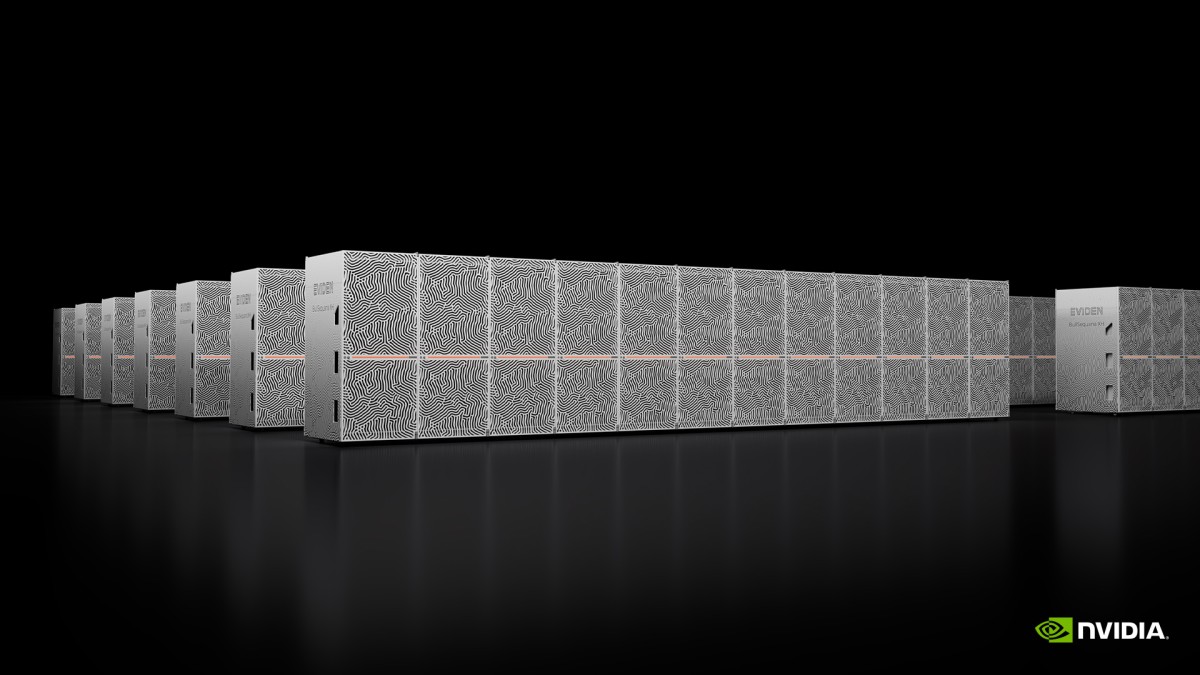Hosted at the Forschungszentrum Jülich facility in Germany, JUPITER — which is owned by the EuroHPC Joint Undertaking and contracted to Eviden and ParTec — is being built in collaboration with NVIDIA, ParTec, Eviden and SiPearl to accelerate the creation of foundational AI models in climate and weather research, material science, drug discovery, industrial engineering and quantum computing.
JUPITER marks the debut of a quad NVIDIA GH200 Grace Hopper Superchip node configuration, based on Eviden’s BullSequana XH3000 liquid-cooled architecture, with a booster module comprising close to 24,000 NVIDIA GH200 Superchips interconnected with the NVIDIA Quantum-2 InfiniBand networking platform. Being the world’s most powerful AI system, JUPITER can deliver over 90 exaflops of performance for AI training — 45x more than Jülich’s previous JUWELS Booster system — and 1 exaflop for high performance computing (HPC) applications, while consuming only 18.2 megawatts of power.
The quad GH200 features an innovative node architecture with 288 Arm Neoverse cores capable of achieving 16 petaflops of AI performance using up to 2.3 terabytes of high-speed memory. Four GH200 processors are networked through a high-speed NVIDIA NVLink® connection.
“The JUPITER supercomputer powered by NVIDIA GH200 and using our advanced AI software will deliver exascale AI and HPC performance to tackle the greatest scientific challenges of our time,” said Ian Buck, vice president of hyperscale and HPC at NVIDIA. “Our work with Jülich, Eviden and ParTec on this groundbreaking system will usher in a new era of AI supercomputing to advance the frontiers of science and technology.”
“At the heart of JUPITER is NVIDIA’s accelerated computing platform, making it a groundbreaking system that will revolutionize scientific research,” said Thomas Lippert, director of the Jülich Supercomputing Centre. “JUPITER combines exascale AI and exascale HPC with the world’s best AI software ecosystem to boost the training of foundational models to new heights.”
“Jülich Supercomputing Centre’s JUPITER system is the latest example of the significant strides Eviden’s making with the NVIDIA GH200,” said Emmanuel Le Roux, group senior vice president and global head of HPC, AI and quantum at Eviden. “Collaborating with NVIDIA to integrate the revolutionary GH200 into the BullSequana XH3000 supercomputer will empower the research and scientific community to push the boundaries of simulations, tackle scientific challenges and accelerate uncharted discoveries.”
The JUPITER supercomputer defines a new class of supercomputers by combining NVIDIA’s full stack of software solutions to solve some of the world’s toughest challenges, including in the areas of:
Climate and weather prediction — Accelerates high-resolution climate and weather simulations with interactive visualization using the NVIDIA Earth-2 full-stack, open platform to participate in global projects such as the Earth Virtualization Engines (EVE) initiative.
Drug discovery — Simplifies and speeds up the development and deployment of models critical to drug discovery using the NVIDIA BioNeMo™ and NVIDIA Clara™ platforms.
Quantum computing technologies — Delivers giant leaps in quantum computing research through the NVIDIA cuQuantum software development kit and CUDA® Quantum platform.
Industrial engineering — Transforms the engineering design, development and manufacturing processes with AI-accelerated simulation and digital twins powered by the NVIDIA Modulus framework and NVIDIA Omniverse™ platform.
Installation of the JUPITER system is expected in 2024.




